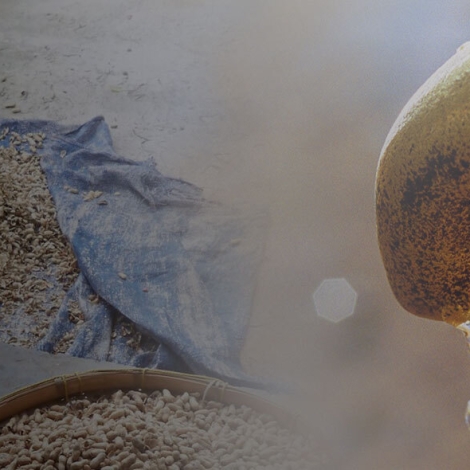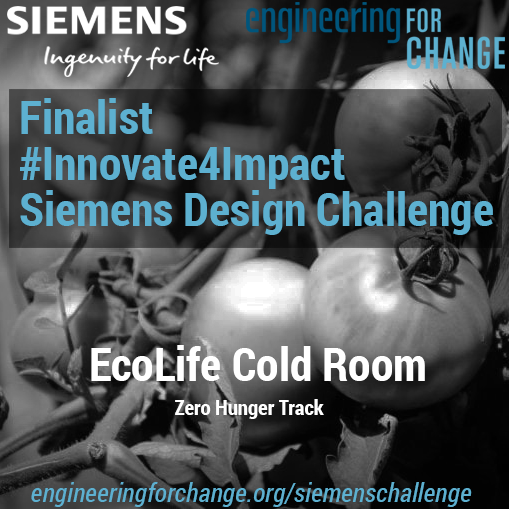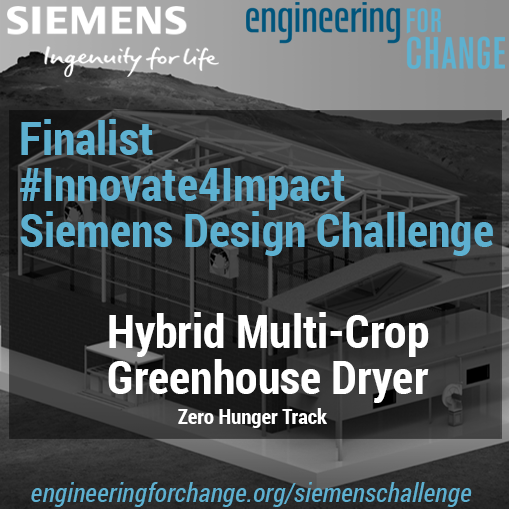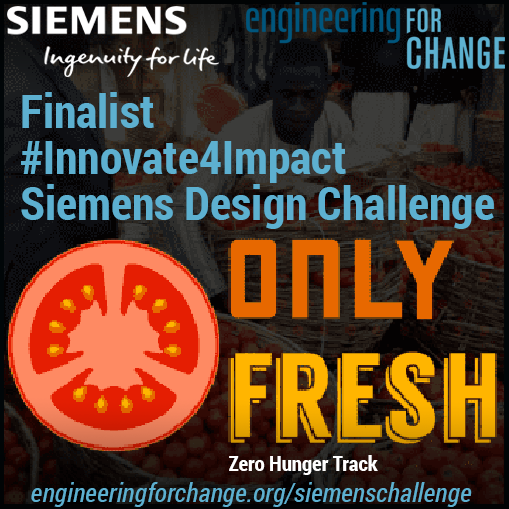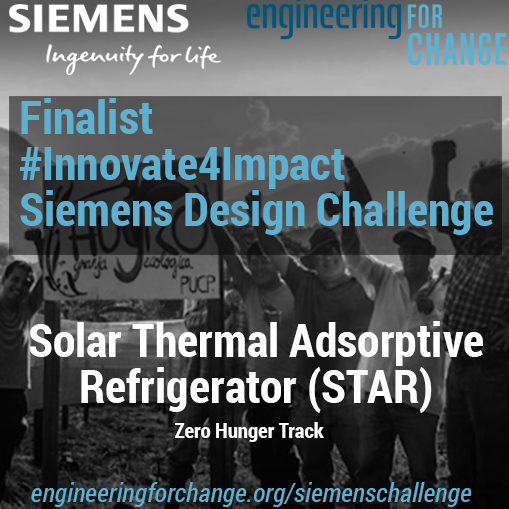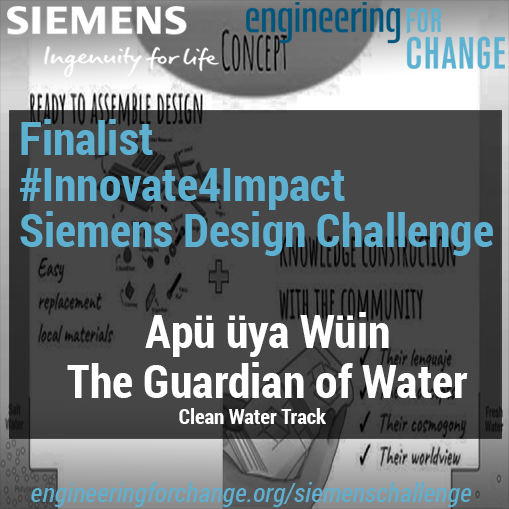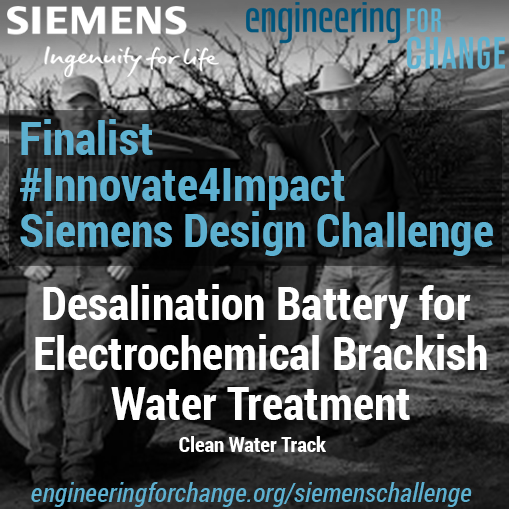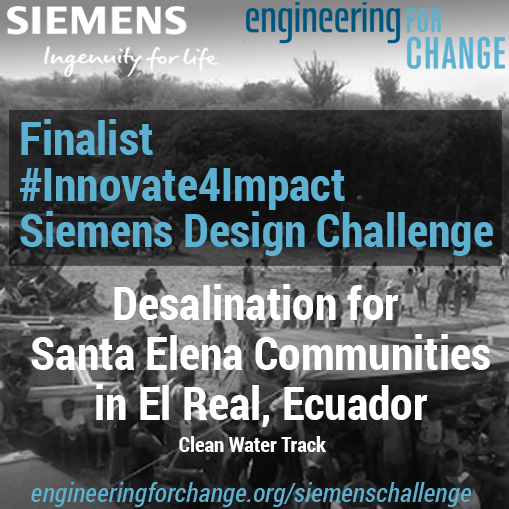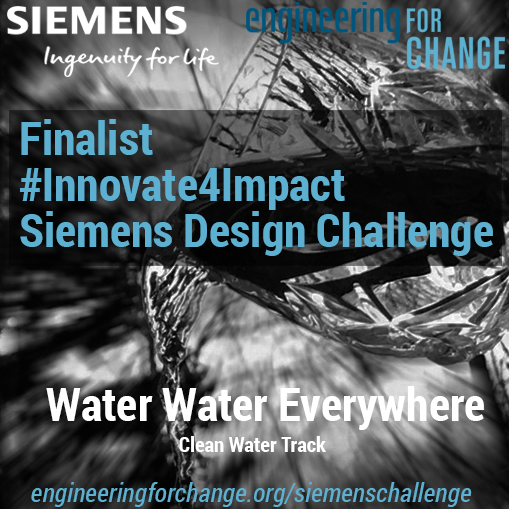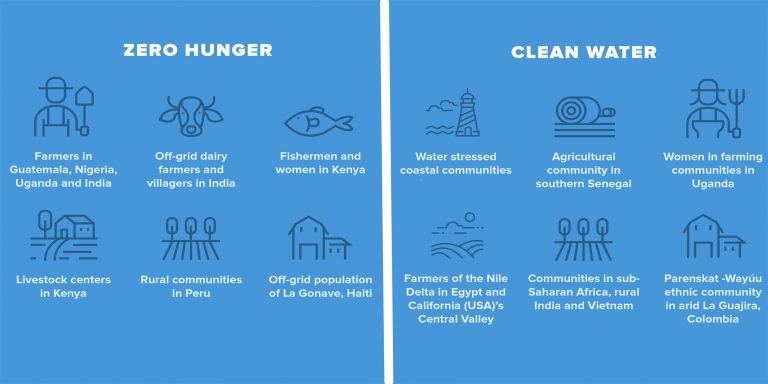We are pleased to announce the eight finalists in the Innovate for Impact: Siemens Design Challenge. Our international panel of expert judges carefully distilled these eight from hundreds of submissions in two tracks: the reduction of post-harvest losses and the treatment of brackish water. The post-harvest loss reduction track serves the completion of the UN Sustainable Development Goal Two (SDG2), Zero Hunger. The water treatment track serve SDG6, Clean Water and Sanitation.
The ideas brought to life in this design challenge stand a chance to make a real difference among some of the world’s most underserved communities. For information on the shortlisted entries and finalists, please see this page: Siemens Design Challenge / Innovation Stories.
Following are the top ideas for reducing post-harvest food losses, listed in alphabetical order. Congratulations to the teams behind these creative solutions to one of the world’s dire challenges.
Zero Hunger Track
The EcoLife Cold Room team is developing cold storage for produce that prioritizes cooperative design, affordability and sustainability. By Hadijah Nantambi, Ian Williams and Kyle Gaiser in Uganda and USA.
This technology has the potential to impact a number of farmers lives in Uganda and we are excited to be a part of that process. – EcoLife Cold Room team
Farmers in sub-Saharan Africa can lose up to 25 percent of their grains and 65 percent of their produce after harvest. The hybrid greenhouse-dryer team believes that greenhouse drying on a large scale can solve the problem. By Mobolaji Oluyimika and Omobowale in Nigeria.
Agriculture in sub-Saharan Africa is synonymous with significant postharvest losses which over the years, have denied a large section of the African population the much-needed nutrition and economic benefits. We at the Post-Harvest Loss Reduction Team have taken up the challenge of finding innovative ways of reducing postharvest losses through timely and adequate drying of food crops.” – Post-Harvest Loss Reduction team
OnlyFresh is a standalone refrigerated unit for transporting fresh vegetables. By Chuma Asuzu in Canada.
We decided to work on this challenge when we saw a picture of a fuel truck being used to transport under the sun. This unsanitary condition made our team bond together under one common goal: we want Nigerians and people worldwide to consume only fresh tomatoes. – Only Fresh team
The STAR team plans to provide reliable and sustainable refrigeration to rural communities in Peru. STAR uses activated carbon and ethanol to refrigerate food and improve its safety. By Angelica Errigo, Brianna Dooley, Sergio Andre Jordan Villena, Sandra Vergara Dávila and Dr. Amy Ciric in Peru and USA.
To help reduce global food waste and the local community, we are completing this challenge to globalize renewable energy technologies and to provide access to nutritional food for those who need it most. – STAR team
Clean Water Track
Next up, the four innovations in the Clean Water Track. These are the top ideas for desalinating water in communities with limited freshwater access.
Apü üya Wüin – The Guardian of Water is a “ready-to-assemble” solar still for water desalination, coupled with an education strategy to ensure uptake in the communities where it is deployed. Namely, Parenskat communities in Colombia. By Jhonn Aguilar, Manuel Mejía, Mónica Gutiérrez and Aliex Trujillo in Colombia.
We are inspired to participate in this competition because if we win, we will be one step closer to providing a sustainable solution to water in the community of Parenskat. – Apü üya Wüin team
This electrochemical desalination system may be more energy efficient and scalable than traditional methods such as reverse osmosis and distillation. By Lukas Hackl and Bilen Akuzum in Germany and USA.
With our years of research and experience in electrochemical systems, battery materials, and water purification technologies, we are confident that we can help invent the next generation of sustainable water desalination technologies. – Desalination Battery team
This is a dehumidification system for coastal communities of the drought-stricken Santa Elena province of Ecuador. By Francisco X. Plaza, Rento Guerra, Veronica Castañeda, Juan Felipe Arias, Dominique Mestanza, Carlos Marín and Lisbeth Enriquez in Ecuador.
Our goal is to reactivate the economy of El Real and to create a positive impact in the society. We believe that all communities should have access to clean water. – Desalination for Santa Elena team
This electrochemical desalination system is aimed at improving livelihoods among almond and cashew farmers in California’s Central Valley. By Daniel Hodges in USA.
The inspiration for this challenge was the water scarcity crisis in Flint, Michigan. – Water Water Everywhere team
What’s Next
The finalists have until August 14th to submit their final designs. We will announce the winners on September 15th. Congratulations and good luck to these talented designers.
